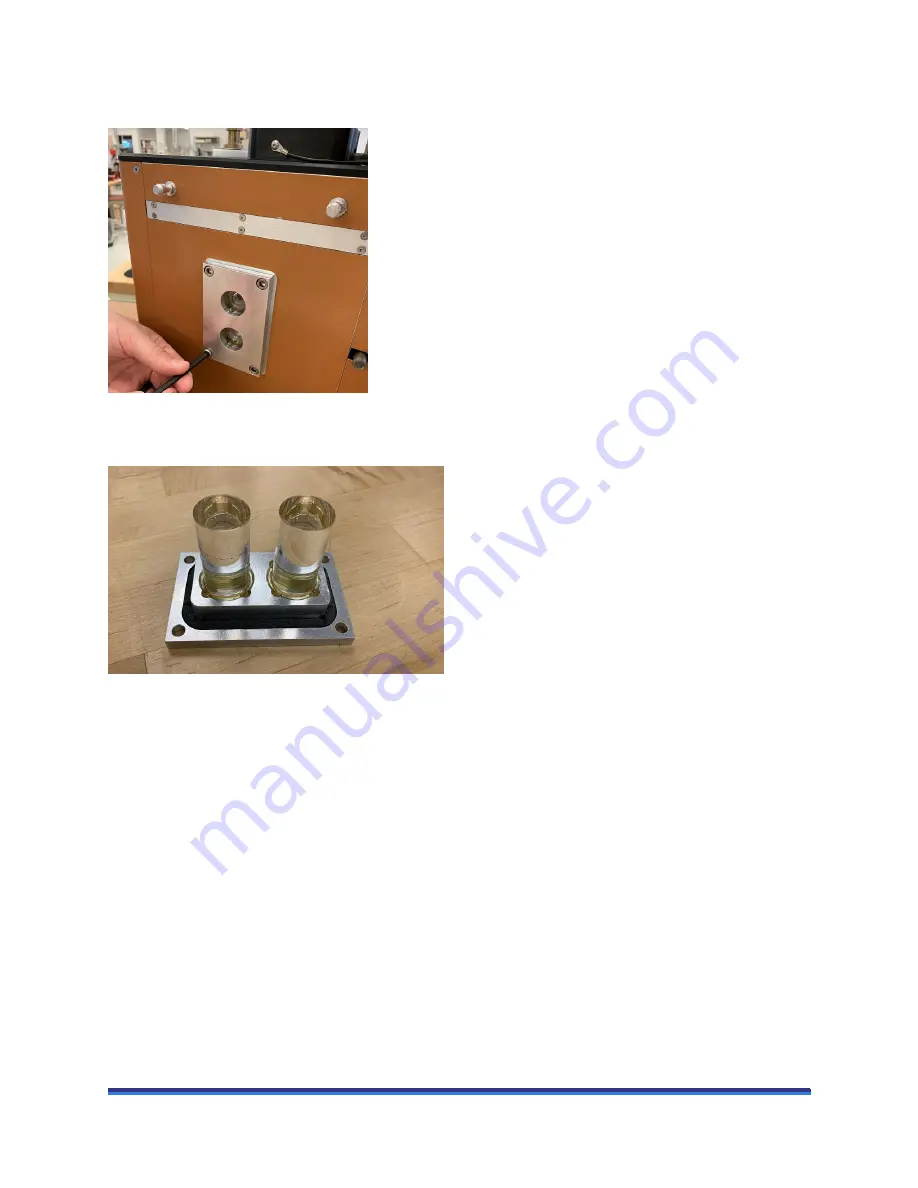
DXF-200 Getting Started Guide
Page 44
assembly located on the bottom of the EM.
4
Remove the four screws from the Light Pipe Assembly panel.
Figure 28
Remove the light pipe assembly.
5
Remove the Light Pipe Assembly from the EM.
Figure 29
Light Pipe Assembly.
6
Inspect the assembly for debris, dust, and smoke. Using a clean, oil-free optical-grade air source, blow
out all the dust/debris that is on the surface of the light pipe. Clean all outer surfaces of the light pipe
using a lint-free optical-grade cloth and high-purity acetone. A small nozzle vacuum may also be used
to clean dust from the surface of the light pipe.
NOTE
: Take care not to scratch the surface of the light pipe.
7
Reassemble the parts back into EM module.
Clean the Xenon Lamp Assembly Optics
8
Using the compress air duster, clean the exit window to remove any possible dust that may be
contaminating the window.
9
Realign the EM module on top of DXF module in original working position.


































